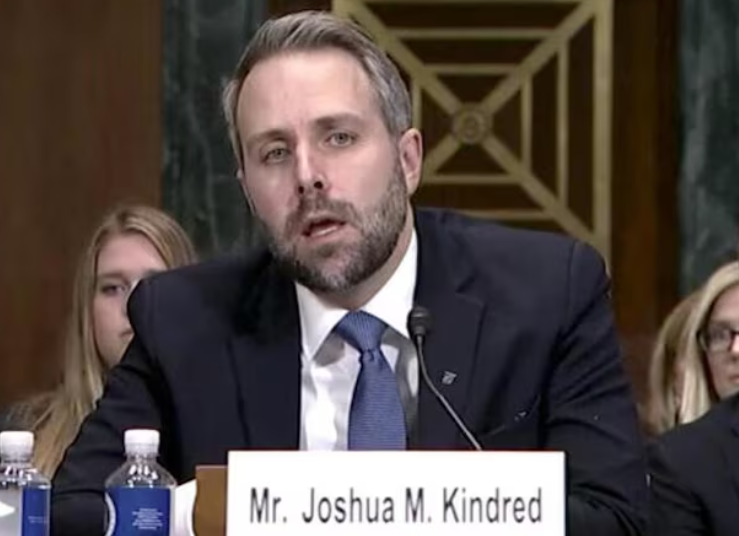The U.S. Department of Justice on Friday referred a judicial misconduct investigation of a federal judge in Alaska to its internal watchdog. This investigation concerns conflicts prosecutors who appeared before the judge may have faced. The department revealed the referral after Alaska’s top federal public defender, Jamie McGrady, requested that the Justice Department’s inspector general review why prosecutors failed to disclose their knowledge of conflicts involving now-former U.S. District Judge Joshua Kindred since November 2022.
In a letter dated Wednesday, McGrady told Alaska U.S. Attorney S. Lane Tucker that her office’s handling of conflicts involving Kindred was “troubling.” Wyn Hornbuckle, a Justice Department spokesperson, confirmed that the issues raised in the judicial investigation of Kindred have been referred to the Office of the Inspector General. Spokespeople for the inspector general’s office declined to comment.
Judge Kindred, an appointee of Republican former President Donald Trump, resigned after the 9th Circuit Judicial Council found that he created a hostile work environment for his law clerks and fostered an inappropriate sexualized relationship with one of them. Investigators discovered that he had two sexual encounters with this clerk in October 2022 after she began working in Tucker’s office. The 9th Circuit’s order noted that Kindred also had a “flirtatious rapport” with a more senior prosecutor who sent him nude photographs and appeared before him.
The head of the U.S. Attorney’s Office’s criminal division informed McGrady via email last week that prosecutors had identified 23 cases in which a potential conflict of interest or an appearance of impropriety existed between lawyers involved in the matters and Kindred. These cases included those handled by the more senior prosecutor. Reagan Zimmerman, a spokesperson for the U.S. Attorney’s Office, stated that the office had an obligation to disclose potential conflicts and would continue to supplement disclosures as required. She added that after learning about the misconduct allegations, the office reported the information to disciplinary authorities.
In her Wednesday letter, McGrady criticized the involvement of several attorneys in the matter and the office’s failure to disclose conflicts, arguing that it left the office in a poor position to “evaluate damage from this scandal.” She requested further information on the conflicted lawyers and called for the Justice Department’s Office of Inspector General, along with a different U.S. Attorney’s Office, to conduct an internal review to assess conflicts within the office.
McGrady acknowledged that the 9th Circuit’s rules might have imposed some secrecy regarding the Kindred probe. She noted that the judge had been recused from cases involving certain lawyers around November 2022. However, McGrady pointed out that defense lawyers were not informed of the reasons for his recusal at the time, preventing defendants from challenging decisions Kindred made before his recusal that may have been “infected by conflict.”
“The government gravely erred in robbing defendants of their opportunity to raise these challenges,” McGrady wrote.

